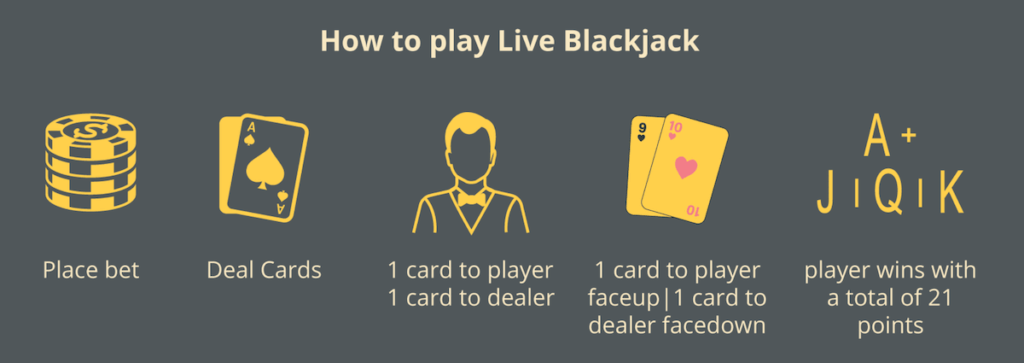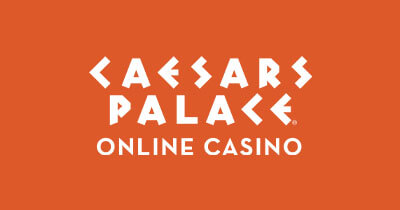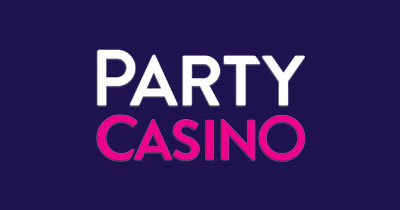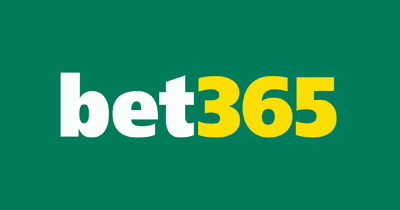by Steve Bourie Learn more about the author read more »
If you’ve ever read any stories about the game of blackjack you’ve probably heard of Stanford Wong. He’s the author of numerous books on the subject, as well as the brains behind some computer software programs that can analyze the game inside and out. His most popular book, Professional Blackjack, is used as a bible by many professional players and is one of the best books for anyone who wants to learn how to counts cards.
Click here to listen to our Podcast Interview: “Blackjack with Stanford Wong” (November 2006)
Steve interviews blackjack expert Stanford Wong. They discuss Wong’s background, card counting, the current state of blackjack in Las Vegas and tips for players wanting to get the most for their money when playing blackjack.
I often refer to Wong’s books and software programs during the course of my work and although we talk on the phone periodically I must admit that I really didn’t know much about his background. In the 30 years that I’ve been reading about gambling I don’t ever remember seeing any stories about how he came to be a blackjack expert. I thought it might be interesting to explore this subject and in early 2002 I conducted an interview with Wong by telephone from his home in La Jolla, California.
About Stanford Wong
Wong was born in Georgia during World War II and his family briefly moved to a few other states before settling in Beaverton, Oregon. He began his schooling there and always had an affection for playing games. “Any new game that I would hear about I would learn the rules and I would figure out how to play it,” he says. “But what always turned me on about any new game was figuring out the optimal strategy.
When I first learned tic-tac-toe for example, I really didn’t want to play the game with other people, I wanted to figure out where, if I moved first, should I make my mark? Or, if I moved second, and given where you made your mark, where should I make my mark? I was probably five or six years old when I figured that out. But that was what always interested me about games: learning the strategy.“
As he grew up Wong also says he spent a lot of time playing card games. “It was the sort of thing that our family and relatives did whenever they got together. There were probably a dozen different card games that my folks and I played, depending on what set of relatives, neighbors or friends we were playing with and I essentially grew up with a deck of cards in my hand. It was just a way of life and it wasn’t anything we did for money, it was just a competitive sort of thing”
Wong believes he led a rather normal lifestyle and never considered playing cards to be anything other than a minor diversion until he read Ed Thorp’s book Beat The Dealer in 1963 which suddenly gave him other ideas. “I thought ‘hey this is neat!’ This guy’s really got something here and maybe I can make some money in the casinos,” he says. “Actually, before that book came out I was doing my own work on analyzing blackjack but I really didn’t do it with the idea of taking on the casinos. I just did it as a hobby because I thought it was an interesting game and I thought I could figure out what the strategy should be.”

Becoming a Blackjack Guru
And how old was he when he developed those blackjack strategies? Just 14! “It was fun,” he says. “You got to look at some of the interesting problems that were involved in calculating ‘should you hit or stand on 16 against a dealer’s 10?’ I thought it was interesting to figure out the formulas for doing that.”
Wong was 20 at the time he read Thorp’s book and, not surprisingly, he turned to the book’s appendix first. “Thorp had calculated all the probabilities for hitting and standing for every situation and I compared his data with the calculations I had done. I noticed that his numbers matched my numbers exactly so I thought ‘hey, this guy’s giving us the true information.’ Actually, I had only done the calculations for deuces through 10’s and I hadn’t done the aces yet because they took a lot of time. At that point I abandoned the rest of my calculations because I would have been doing what he had already done and I knew his numbers were correct.”
Then an udergraduate student at Oregon State University, Wong was still too young to enter a casino but he enjoyed learning how to count cards using Thorp’s 10-count system. “I practiced on evenings and weekends,” he says. “Since I was a student I didn’t have that much time for it and I just did it as a challenge. I had to wait a few months until I was 21 before I could go to Nevada and visit the casinos.”
One week past his 21st birthday Wong traveled to Reno at the start of the summer with a classmate who had also taken the time to learn card-counting. “It was interesting because we won money right off the bat,” he professes proudly. “We thought ‘gee, what an easy way to make money.’ We just had one of those fabulous win streaks. We started with a $300 bankroll and made something like $250. Our minimum bet was $1 and our maximum was $4.”
During that first weekday afternoon in Reno he strolled into the Horseshoe Casino and found he was the only customer in the place. “There wasn’t even anybody playing slots,” he says. “All of the dealers and the pit boss were watching me because they had nothing else to do and I didn’t know how to behave because I had never watched other players. So here I am just sitting back in my chair winning hand after hand and all of these silver dollars were piling up in front of me. I had about 250 of them and finally it dawned on me that I wouldn’t be able to carry them all.” At that point he stopped playing and when the dealer asked him why, he said “This is all the money I can carry. If I win any more I won’t have any way to carry it.” Then the dealer asked if she could “give him a check for those silver dollars?” and he replied “I don’t want your check. I want this money.” The dealer then explained to the novice player that she would exchange his silver dollars for chips out of her rack which he could then take to the cashier’s cage to be redeemed for cash. Still unsure about what she was proposing to him, Wong wondered “are they trying to cheat me or is this the normal procedure? There were no other players there that I could ask but I finally agreed to it. Then, I must have ran over to the cashier’s cage because it was like I was afraid that the chips were going to lose their value by the time I got there. I was so relieved when the cashier finally gave me $20 bills for those little pieces of plastic which I wasn’t sure had any real value. That’s how naive I was.”
Of course, the blackjack games were a little different back in that summer of 1964. “They were all single-deck games and they dealt out 50 of the 52 cards,” says Wong. “They only burned one card and they wouldn’t deal the last card. If you got a dealer to yourself it was a fabulous game. The rules were you could double any two cards and the dealer would hit soft 17.”
Building off Blackjack Success
Following his successful first trip Wong continued to make visits to Reno or Lake Tahoe whenever he had a break from his academic studies and the following summer he felt ready to take on Las Vegas. However, after three days in Vegas he gave up because he was discouraged by the widespread cheating which he saw. “It seemed like every place in Vegas was cheating,” he says. “I couldn’t find an honest game. I remember one place where I saw the dealer cheating. It was an obvious move and he noticed that I saw him do it. Suddenly, he got this big smile on his face as if I were admiring his handiwork and he was proud of what he had done. There was no shame on his part and it was just like well, that’s the way we deal the game in this town.” Following his experience in Vegas Wong returned to Reno to practice his skills. “There were a couple of places in Reno that cheated but we stayed away from them. The rest were all honest.”
In 1965 Wong completed his undergraduate studies and the following year he received his MBA from Oregon State. He stayed there as a teacher for two more years and during that period he met and married his wife (they’re still married). Naturally, he was still playing in Reno and Lake Tahoe as often as he could and in 1968 he was drafted into the Army. Following his two-year tour of duty Wong enrolled at Stanford University (located about 30 miles south of San Francisco) to pursue a PhD in finance. Being closer to Las Vegas he decided to visit the city again and he says he “was pleasantly surprised to see that Las Vegas was dealing honest blackjack games. Somehow Las Vegas got ‘cleaned up’ between the years of 1965 and 1970.”
For the next five years Wong visited Nevada casinos once or twice a month while pursuing his PhD and also while helping to raise his son (born in 1971) and his daughter (born in 1974). In 1974 he began teaching finance courses full-time at San Francisco State and it was during his last term at S.F. State in 1976 that Wong found himself in a bit of a dilemma. “I was making more money playing blackjack than teaching classes and I didn’t want to have to go to all of the faculty meetings. I thought they were a waste of time and instead of sticking around for meetings I would rather pop over to Las Vegas,” he says. Since he had signed a contract he felt obligated to continue to teach his classes but he really didn’t need the money so he made a deal with the school to teach for free in return for not having to go to the meetings. The University agreed and paid him a salary of $1 for his last term of teaching at the school. That, according to Wong, was his “last real job.”
Professional Blackjack
In 1975 Wong published Professional Blackjack which, he says, he really didn’t intend to write and the book sort of evolved. It seems that lots of people were always asking him to teach them how to count cards but he didn’t have time for that. Instead, he wrote an explanation of how to count cards which he handed out to anyone who asked him for help. When those people came back with questions, he would write out the answers and then add that information to his original explanation to make it even more comprehensive. “The original write-up of how to count cards kept getting bigger and bigger,” he says. “The other thing I did was that I worked out strategies on the computer that Thorp didn’t have in his book. Thorp didn’t cover surrender, for example, so I worked out my own surrender indexes. I also worked out strategies for games where the dealer stood on soft 17. Eventually, I looked at all of that material and thought if I put it all together, along with an explanation of how to play the game, it could be a book but it was all sort of accidental.”
Once he was ready to publish his book Wong decided that he needed a pen name. After all, he had been playing under his real name in the casinos and he didn’t want them to know that he was an expert in card counting. “I really liked Nevada Smith, but somebody else already had that name,” he says. “I had a preference for complicated first names and simple last names so I went to my friends in the PhD program at Stanford and asked for suggestions. Denny Draper, who’s now a professor at U.S.C., suggested Stanford Wong and I said ‘that’s it!’ It’s got the mystique of the Orient and it’s got an academic ring. So, I have to give him credit for coming up with my name.”
In 1976 Wong moved to La Jolla (near San Diego) and the following year decided he wanted to try to make a living “for a year or two” from his publishing business and playing blackjack. He finally got his Ph.D. in 1978 and initially thought he would become a college professor but, he says, “it turned out that I really enjoyed what I was doing and I was making enough money that I never got back to teaching.”
Wong soon got the urge to broaden his horizons by traveling in search of good blackjack games. “I made a lot of trips to Asia,” he says. “Korea had wonderful blackjack. So did Macau, Indonesia and the Philippines. They all had great games back then.” When asked if his trips were successful, he responds with an enthusiastic, “oh yeah.” And was he successful enough that he started getting barred? “Only at a few little Korean casinos,” he says. “The problem at that time was that they just didn’t have enough customers. If there were only four customers they could keep track of each customer and know exactly how they were doing. I just won too much money too fast and they said ‘sorry sir, we don’t want you here anymore.’ I would assume that they were sophisticated enough to know that I was counting cards but their attitude was ‘you’re winning from us, you’re too good for us, please don’t play here anymore’ and I could understand that.”
Back to Las Vegas
Weary from his long trips to Asia, and eager to spend more time at home with his family, Wong resumed his visits to Las Vegas where he found that he could continue to play as long as he didn’t spend too much time in any one place. He developed an index card system where he kept track of his play. He had a card for every casino with details on: the date of his visits, how many hours he played, which shift he played on, and the results of his play (dollars won or lost). Then, when he was planning his next visit he would pull out his cards and select a group of casinos where he hadn’t played in a while and visit them. This way he wouldn’t become too well known to any particular casino’s personnel.
Wong continued to visit Vegas once or twice a month and says he continued to make money even though the casinos “did things to make the games more difficult to beat, with multiple decks being one example.” “However,” he says “at the same time, players developed skills too. There are skills that I have now that I didn’t have in 1978. For a while there was a really good way to make money by looking for warped hole cards, especially on insurance. You just looked at the shape of the dealer’s hole card and if it was bent one way it was either an ace or a 10 and if it was bent the other way it was a small card. Plus, I had no idea about ‘tells’ when I first started playing blackjack. That’s when you use the dealer’s body language to learn something about their hole card.”
And did he always win? “Oh there’s no such thing as always making money,” he says. “Sometimes I would win and sometimes I would lose but at the end of the year I would be ahead.”
Wong’s comment here brought up a widespread misconception that many people have about card counters. Most people think that counters always win whenever they play but that just isn’t true. “The edge that a card counter has over a casino is much, much smaller than the edge that a casino has over their players, ” he explains. “The average blackjack player thinks ‘every time I play I lose but as a card counter you’ve got an edge so every time you play you must win.’ However, it doesn’t work that way because the counter’s edge is much smaller. Just as there are gamblers who occasionally come back as winners because they got lucky there are also card counters who get unlucky and the casino beats them. It just happens.”
Wong’s advice for best Blackjack opportunities
Wong believes that some of the best opportunities for blackjack players today may be in the special promotions that the casinos are continuously offering. “One of the best things now is all of the ‘freebies’ that the casinos are giving out,” he proclaims. Anybody that plays a lot of blackjack has got more than they need in the way of room and food comps, plus many casinos are sending out coupons that are valid for cash at the cage or they’re sending out matchplay offers that can be played at the tables just like cash. There’s a lot of free money being given out to entice people to play. So part of the income for a professional player now, or even a regular player, is in these free cash offers. That wasn’t the case 20 or 30 years ago.”
When asked if there is any way a basic strategy player can come out ahead in the long run, Wong replies: “Well, it depends what you mean by come out ahead. You have to look at each individual and ask what is it that they want? There are a lot of people on our website bj21.com, for example, that don’t really need the money they make playing blackjack. They’re just looking for some fun. These are people who are successful as medical doctors, or lawyers, or something else outside of the world of blackjack but they’re very competitive. They love Las Vegas and they really like the idea that when they go there they can stay at luxurious accommodations and eat meals in fabulous restaurants and somebody else will pay for them. So for them, as long as they’re playing a game that’s breakeven or better, they’re happy because they get to live like kings but they don’t have to pay for it.”
And does Wong himself play for comps? “I don’t do that,” he says. His preferred method is to count cards and make sure he is only playing in positive decks (where the count favors the player, unlike negative decks where the count favors the casino). This means that he is constantly changing tables in search of positive situations and it’s a system that is popular with card counters. The method is known as “Wonging” and, of course, it’s named after him.
“I like the idea of walking around and finding positive counts,” he says. “I’ll sometimes play neutral counts or go to a table where a dealer is shuffling but if I get a count of -2 after the first hand, I’m gone. If it’s -1 I might stick around for a second hand but I basically just stick around for positive counts. If I were to sit at one table making minimum bets in negative counts it wouldn’t be worthwhile. In the first place I don’t want to waste my time making minimum bets and in the second place that’s going to look bad to anyone who’s watching me when I hit a good count and start raising my bet. I’d rather have them see me only betting $200 a hand. I don’t want them to see me sometimes betting $25 and sometimes betting $200.”
But don’t the casinos know him as Stanford Wong when he plays there? “Quite a few people in the casinos know me but they tend to be the higher-ups, they’re not the people down on the floor” he says. “As long as I keep my bets low enough, basically the people who are watching me don’t know me at all. At a lot of these places in Nevada the point where the attention starts is $100 and as long as you keep you bets under $100 you’re flying under their radar. There are also some places where you can bet up to $300 or $500 before they start paying attention, so I like to bet as much as I can but the really important thing is to stay under their radar. If they’ll let me bet $500 and nobody’s going to care I’ll stick $500 out there.”
Wong’s words of wisdom for Blackjack players
When asked if he has any words of wisdom for the average blackjack player Wong makes the point that players should be sure that they’re getting the freebies that their action warrants. “If you’re betting enough to earn free meals then you should make sure that the casino is paying for your meals,” he says. “Also, you’ve got to know if you’re playing with an edge and if you’re not counting cards then you’re not playing with an edge. If you like to play and you’re not a card counter then my advice is to play as slowly as possible in order to get your comps.”
By urging non-counters to play slowly Wong is referring to the fact that casinos always base their comp formulas on the amount of time you spend at the tables plus the average amount of your bets. “Typically they’ll want four hours but they’re going to say four hours whether it’s a busy table and you’re playing 40 hands an hour or it’s an empty table where you’re playing by yourself and putting in 200 hands an hour,” he says. “If you’re not counting cards make sure that you’re playing at a table where there are lots of other players. It helps if they’re all laughing and having a good time and the dealer’s joking along with everyone and the game is moving as slowly as possible. But if you’re a card counter I would advise you to do just the opposite because you want to get in as many hands per hour as possible. You would want to play at the times of day when the casino is empty and you’re the only player at the table and the dealer is really fast.”
Of course there are some blackjack players who believe that you don’t have to be a card counter in order to have an edge over the casino. Many of these players believe that you can use money management, or progressive betting systems to overcome the casino edge but Wong doesn’t believe that’s possible. “That’s hogwash,” he says. “Money management does not give you an edge over the casino. The first thing you’ve got to do is count cards so you play well enough to get an edge over the casino. Once you’ve got that edge that’s where money management comes in. But if you’re not playing with an edge then proper money management says to keep your money in your pocket and don’t risk it at all. “
Looking back on the start of his career in blackjack Wong says he was surprised at how things worked out. “I just thought it would be interesting to do for a while and I didn’t see it as a lifetime thing. I thought I would just be doing it for a short time but it kept stretching out and stretching out.”
Although he’s had great success playing blackjack Wong is quick to admit that he would be “bored stiff” if that was all he did. “I just wouldn’t be doing that anymore,” he says. “When I first started playing the money I made was important to me because I needed it to pay bills but then I got to the point where I had plenty of money and I really didn’t have to play blackjack for big money anymore. So I started asking myself what do I really want to do with my time? Do I want to sit in a smoky casino and make these boring decisions over and over again and have these huge ups and huge downs in my bankroll if I really don’t need the money that badly? So I started to think of different things to do and what happened is that I got into more things that I could write about. I got into tournaments and wrote a book on that, plus books on horse racing, video poker, sports betting and now I have my own website at bj21.com. There’s always something new to come along that keeps my interest up.”
And is he happy with way things turned out? “Of course,” he says. “I consider myself as being very fortunate in being able to do basically whatever I wanted to do for my whole adult life and what I really enjoy doing is figuring things out.” There are an awful lot of gamblers out there who are glad he did!


















